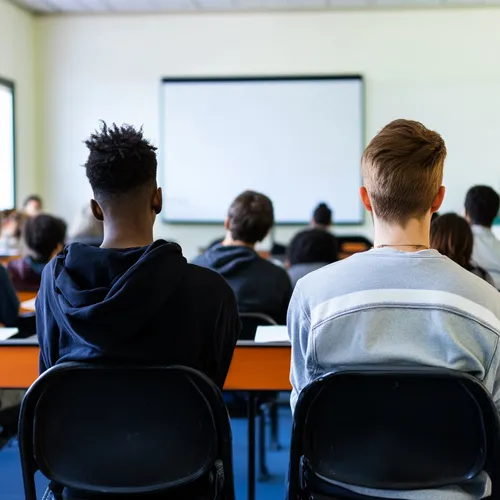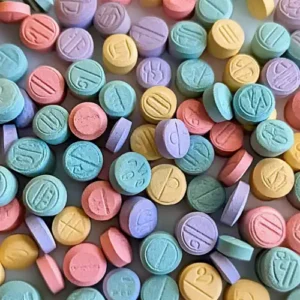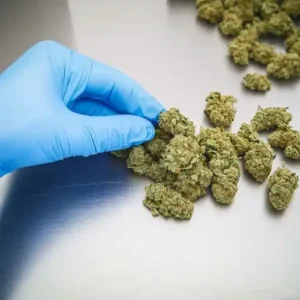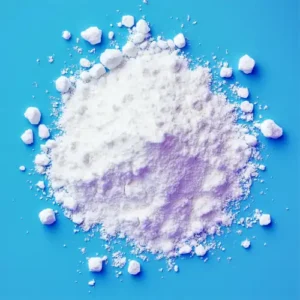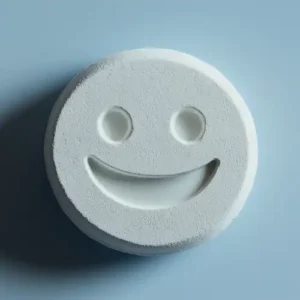Today in the United Kingdom, drug use is becoming a very serious problem in the teenage population, and the children being affected are getting younger and younger. Research shows that, over the past 10 years or so, the number of students either coming to school under the influence of drugs or bringing drugs into the school, has increased dramatically. It’s not only the child taking drugs that’s adversely affected: there’s also the knock-on effect on other students. The disruptive behaviour of those taking drugs affects both the learning and happiness of other students, plus there’s a strong peer-pressure push for other students to also take drugs.
Drug use outside school hours also heavily impacts on school behaviour and the achievements of not only the students taking drugs, but also those around them. We know that both Cannabis and Synthetic Cannabis (K2) can have very noticeable effects on mental health and personality, with drug-use also increasing the risks of aggressive behaviour and violent outbursts in students using them.
As long ago as 2004, then Prime Minister, Tony Blair was calling for random drug testing of pupils in UK schools. He told the News Of The World, “We cannot force them to do it but if heads believe they have a problem in their schools then they should be able to use random drug testing.”
Blair’s comments acknowledge that headteachers have an obligation and duty to students in their care to not only provide a physically-safe school environment, but also to ensure the school offers its students an environment that’s safe and conducive to learning. School leaders are responsible for the welfare of their students, and this includes being able to identify issues like drug abuse.
It’s a fact that, today, there’s an increasing risk in schools that students are dealing drugs and selling them to other students. All teachers need to be very vigilant!
Does Your School Have a Drug and Alcohol Testing Policy?
We’re now learning just how prevalent drug use has become in the UK teenage population, and we strongly suggest that all schools (secondary schools in particular) have a drug and alcohol policy. This policy should make it very clear that any student bringing drugs into school or attending school while under the influence of drugs or alcohol, is totally unacceptable. Your school’s drug testing policy should be clearly defined within this policy.
Before a drug test can be performed on a student, consent is required from both the student and their parents. If either should refuse, this fact should be documented.
School leaders and staff may want to refer to the Department for Education guidance document on managing drugs, published in 2012. This paper covers drug-related incidents within schools and pastoral support for pupils.
Types of Drugs to Screen for in Schools
Our research shows that the two obvious drugs to screen for are Cannabis and Synthetic Cannabis. In the age group we’re referring to, it’s these two drugs that will most likely test positive. We also suggest testing for Opiates, Ketamine, Amphetamines, Ecstasy (MDMA), Benzodiazepines, and Crystal Meth (Methamphetamine); however, we believe these types of drugs will not be detected as often as Cannabis.
Drug Test Kits for Nicotine (also called a Cotinine Drug Test) are also being used by some schools. We can provide a 10-panel drug testing kit which is perfect for schools because it’s able to detect all these drugs.
A Cocaine Drug Wipe can be used to check surfaces for drug use. These types of swabs are highly reliable and give results in seconds. When traces of cocaine are found, the wipe turns blue.
The Impact of Drug Testing on School Culture
Drug testing in schools isn’t just about catching users – it’s about fostering a culture of health and safety. When implemented thoughtfully, these programs can spark meaningful conversations about substance abuse and its consequences. They’re not meant to be punitive, but rather a tool for early intervention and support.
Consider this: a school that introduces drug testing might see an initial spike in anxiety among students. But over time, it could lead to a decrease in peer pressure to experiment with drugs. Kids might think twice before lighting up that joint at a party if they know there’s a chance they’ll be tested on Monday.
However, it’s crucial to pair testing with comprehensive education and counselling. Without proper support systems in place, we risk alienating students who need help the most. The goal should be creating an environment where students feel safe asking for help, not just avoiding getting caught.
What About Alcohol?
Teenagers often abuse alcohol, which is considered a drug, too. The problem here is that alcohol leaves the blood quite quickly, making it tough to detect recent use. Common ways of testing, such as by urine and saliva samples, and breathalysers, can detect alcohol for just a few hours after it has been used. The cut-off for detecting alcohol usually comes when the alcohol content reaches 0.02 percent or more.
It is not uncommon for teens with substance abuse issues to use more than one type of drug. This would mean that identifying an alcohol issue may also mean that the teen in question also uses illicit or prescription drugs.
It might be appropriate to include Alcohol as one of the drugs that you regularly screen for within a school environment. We offer a 12 Panel Urine Drug Test with Alcohol that may be suitable. Other options are a separate alcohol saliva test or a more sophisticated, digital alcohol breathalyser, similar to those used by police and law enforcement agencies.
Your Choice of Drug Testing Kits
There are two types of drug testing kits — the urine drug testing kit and the saliva (mouth swab) testing kit. The detection period of saliva drug testing is quite short, so this test will tell you if a student is under the influence of drugs whilst they’re at school. On the other hand, the detection period for urine drug testing is much longer, so this test will tell you if the student is using drugs outside school hours and at weekends. Urine screening offers more positive drug test results.
UK Schools Not Randomly Drug Testing Students
Random drug testing in schools has not yet become normal procedure in the UK: this is where the student population can be randomly tested at irregular intervals. However, we understand that random testing, or at least of the threat of it, is slowly being introduced in some UK schools.
Random drug testing is becoming more common in boarding schools where students often stay for months at a time. (In January 2017, a boarding school in Nottinghamshire hit the headlines when it announced a policy of regularly drug testing pupils in Years 10 and above)
And, if there’s been a confirmed drug-related incident at a school, random drug testing may be introduced for a certain period of time.
At the moment, however, random drug screening in schools has not become the norm because it’s both time-consuming and more expensive than conducting post-incident testing. Typically, most results of random drug tests in schools would be negative, unless of course there was a major drug problem in the school.
Post-Incident Drug Testing in UK Schools
As mentioned above, the most common form of drug testing in UK schools is post-incident drug testing. This is where an incident has occurred in a school where the student or students involved are believed to be under the influence of drugs. A drug test is conducted to confirm or disprove this suspicion. Should the drug screening test result prove positive, and disciplinary action is to be taken, then confirmation of this test should be completed using a laboratory chain of custody urine drug test pack.
Should you require any further information or advice on school drug testing kits, please don’t hesitate to contact us.
Should Teenagers Even Be Tested?
The body and brain is still developing in the teen years, which mean that teenagers are particularly at risk when using drugs. The vast majority of teens steer clear of illicit drugs, but those who use them can experience negative health and behavioural effects.
Short term: It only takes one experience with a drug for a person to make poor choices that can result in injury, as well as poor performance in school. There is also always the risk of an overdose every time illegal drugs are used.
Long term: The possibility of negative health effects becomes more likely with repeated use of drugs. Besides issues with school and family, there are also things like depression, anxiety, and potential paranoia to consider, all of which are exacerbated by drug use.
Perhaps more importantly, addiction becomes a real possibility with regular drug use. Research has proven that the earlier teenager starts using drugs, the sooner they may experience substance use disorder (SUD). Teens develop an SUD the moment that drug use begins to negatively affect how they behave in school and at home, shirking responsibilities and failing to make grades. SUD’s run the gamut from mild to severe, with addiction sitting at the top of the totem pole. Research has also found that teens who avoid drugs in their high school years tend to be less likely to develop an SUD in their adult life.
Can the Drug Tests be Beaten?
High school students who use drugs may be aware of techniques that are designed to mask their use or detoxify the system. Students will try and find ways to beat a drug test. There is all sorts of information on the subject to be found online, and there are even companies that sell “clean” or fake urine for those about to be tested. Most of these products and techniques are specifically for urine tests for cannabis, but it’s a growing market, and you can now also find masking techniques for hair and oral tests, as well as tests for multiple drugs.
These products sell for a lot of money, and the harsh reality is that most don’t work or are easily spotted during testing. Even when the product successfully masks the drug, the product itself is discovered during the test, which is generally a sign that the high school student being tested has something to hide, and thus need further screening. Some testing programs will even go as far as marking a test “positive” if a masking product is found.
Photo by Anthony Cunningham for Zoom Testing
Zoom Testing is a leading UK drug testing company and a supplier of Drug Test Kits.
This post was originally published in 2015 and last updated in September 2024.

